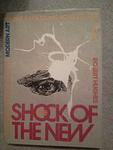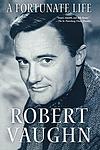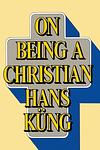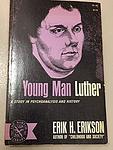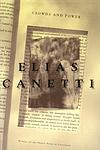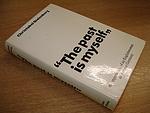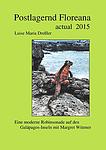The Greatest Australian, German "Nonfiction" Books Since 1950
Click to learn how this list is calculated.
This list represents a comprehensive and trusted collection of the greatest books. Developed through a specialized algorithm, it brings together 300 'best of' book lists to form a definitive guide to the world's most acclaimed books. For those interested in how these books are chosen, additional details can be found on the rankings page.
Genres
Countries
Date Range
Reading Statistics
Click the button below to see how many of these books you've read!
Download
If you're interested in downloading this list as a CSV file for use in a spreadsheet application, you can easily do so by clicking the button below. Please note that to ensure a manageable file size and faster download, the CSV will include details for only the first 500 books.
Download-
1. The Origins of Totalitarianism by Hannah Arendt
The book explores the roots of totalitarian systems, particularly focusing on Nazi Germany and Stalinist Russia. It delves into the historical, social, and political circumstances that led to the rise of these oppressive regimes, including anti-Semitism, imperialism, and the decline of the nation-state. The author further discusses the nature of power, the role of propaganda, and the manipulation of the masses in these systems, providing a comprehensive analysis of totalitarianism.
-
2. Schindler's List by Thomas Keneally
The book tells the true story of a German businessman who saves more than a thousand Polish Jews during the Holocaust by employing them in his factories. The protagonist's transformation from a greedy high living war profiteer to a savior of lives forms the crux of the narrative. It offers a chilling yet inspiring account of the horrors of the Holocaust, human resilience, and the power of one individual to make a significant difference.
-
3. The Female Eunuch by Germaine Greer
This book is a seminal feminist text that explores the oppression of women in society. It critiques the traditional roles and expectations of women in the mid-20th century, arguing that societal norms and conventions force women into a secondary, submissive role, effectively castrating them. The book encourages women to reject these norms and to embrace their own sexual liberation, arguing for the need for a revolution in the way women perceive themselves and their place in society.
-
4. Eichmann in Jerusalem: A Report on the Banality of Evil by Hannah Arendt
This book is a thought-provoking exploration of the trial of Adolf Eichmann, a major organizer of the Holocaust. The author argues that Eichmann was not a fanatical ideologue, but rather an ordinary individual who simply followed orders and bureaucratic procedures, highlighting the terrifying potential for evil in any system that values obedience over personal responsibility. The concept of the "banality of evil" is introduced, suggesting that horrific acts can be committed by ordinary people under certain conditions.
-
5. The Rings of Saturn by W. G. Sebald
"The Rings of Saturn" is a richly detailed travelogue that follows the narrator's journey along the coast of Suffolk, England. The narrative weaves together history, literature, and personal anecdotes, exploring topics as diverse as the decline of the herring industry, the horrors of colonialism in the Congo, and the life of philosopher Sir Thomas Browne. The book is characterized by its melancholic tone, its digressive style, and its meditative reflections on memory, time, and decay.
-
6. The Emigrants by Winfried Georg Sebald
"The Emigrants" is a novel that explores the experiences and memories of four different emigrants, each with a unique and complex history. The narrative primarily focuses on the psychological impact of displacement and the haunting nature of the past. The author delves deep into their lives, revealing their struggles with identity, loss, and the persistent influence of their roots. The narrative is interwoven with historical events, photographs, and other documents, creating a rich tapestry that blurs the line between fact and fiction.
-
7. Schindler's Ark by Thomas Keneally
The book is a historical novel based on the true story of a German industrialist who becomes an unlikely humanitarian amid the barbaric Nazi reign. When he witnesses the horrors inflicted upon the Jews, he is moved to save as many as he can by employing them in his factory. His actions, driven by courage and compassion, lead to the salvation of over a thousand Jewish workers from certain death in the Holocaust. The narrative explores themes of morality, survival, and the capacity for good in the face of overwhelming evil, as the protagonist navigates the complexities of war and the human spirit.
-
8. The Road from Coorain by Jill Ker Conway
"The Road from Coorain" is a memoir that chronicles the author's journey from her childhood on a remote sheep station in Australia, through her adolescence in war-ravaged Sydney, and finally, to her departure for America. The narrative explores themes of self-discovery, gender roles, and the power of education while providing a vivid portrayal of life in the Australian outback. The memoir also delves into the author's complex relationship with her mother and the impact of her father's death on their family.
-
9. The Shock of the New by Robert Hughes
"The Shock of the New" is an insightful exploration of modern art from the late 19th century to the present day. The book examines the cultural, social, and political forces that shaped and influenced the development of various art movements such as Cubism, Futurism, Surrealism, and Pop Art. It also provides an in-depth analysis of the works of prominent artists who played pivotal roles in these movements. The book serves as a comprehensive guide to understanding the complexities and nuances of modern art.
-
10. A Fortunate Life by A.B. Facey
"A Fortunate Life" is a memoir that chronicles the extraordinary life of a man who overcame immense hardships and adversity to find happiness and contentment. From his humble beginnings in rural Australia to his experiences as a soldier in World War I, the author shares his remarkable journey filled with poverty, loss, and resilience. Despite facing numerous challenges, he remains optimistic and grateful for the opportunities life has presented him, ultimately proving that a fortunate life is not defined by material wealth, but by the strength of the human spirit.
-
11. Tracks by Robyn Davidson
"Tracks" is a memoir that recounts the author's extraordinary journey across the Australian desert on camelback. The narrative provides vivid descriptions of the harsh desert landscape, the challenges faced during this nine-month, 1,700-mile trek, and the transformation of the author's personal character along the way. The book also explores her interactions with the indigenous Aboriginal people and their culture, and includes her reflections on solitude, self-discovery, and the human connection to nature.
-
12. I Will Bear Witness by Victor Klemperer
"I Will Bear Witness" is a chilling personal account of life in Nazi Germany from 1933-1941. The author, a Jewish professor, meticulously details the daily life under Hitler's regime, capturing the fear, oppression, and constant threat that Jews faced. The diary serves as a powerful testament to the horrors of the Holocaust and the resilience of those who endured it.
-
13. Illuminations by Walter Benjamin
"Illuminations" is a collection of essays that delve into the complex interplay between society, culture, and art. The book explores the nature of artistic expression and its role in historical contexts, examining how cultural artifacts reflect and influence the conditions of their times. It discusses the concept of the "aura" of artworks, the impact of technological reproduction on art's value and meaning, and the role of the critic in interpreting cultural texts. The work also includes a seminal essay on the philosophy of history, which critiques traditional historical narratives and argues for a more nuanced understanding of the past, informed by Marxist theory and a sensitivity to the cultural and political undercurrents that shape human experience.
-
14. A Comparative Study Of Total Power by Karl Wittfogel
The book in question is a scholarly examination of the concept of 'hydraulic civilization,' a term used to describe societies that manage large-scale water projects such as irrigation and flood control. The author argues that the bureaucratic structures necessary to control water resources in arid regions historically led to the centralization of power and the development of autocratic or despotic forms of government. Through comparative analysis, the work explores how the management of water resources influenced social, economic, and political structures, and how this 'total power' shaped the civilizations in question, with a particular focus on Asia. The study delves into the relationship between natural environments, technological capabilities, and the evolution of political systems.
-
15. On Being A Christian by Hans Kueng
The book in question is a comprehensive exploration of Christian faith and its relevance in the modern world. It delves into the historical and philosophical foundations of Christianity, examining its core doctrines, ethical implications, and the challenges it faces in contemporary society. The author critically assesses the role of the Church, the credibility of Christian beliefs in light of scientific progress, and the potential for dialogue with other religions. Throughout, the work emphasizes the importance of a genuine and lived faith, encouraging believers to embody the teachings of Jesus in a way that is both authentic to the Christian tradition and responsive to the needs of today's world.
-
16. Young Man Luther by Erik H. Erikson
This book is a psychological analysis of a seminal figure in religious history, focusing on his early life and the internal struggles that led to his revolutionary actions. The author, a prominent psychologist, applies psychoanalytic theory to understand the subject's tumultuous journey from a conflicted young man to a leader who would challenge the very foundations of the Church. The work delves into the protagonist's experiences with authority, his quest for spiritual certainty, and the personal crises that fueled his theological breakthroughs, ultimately shaping the course of Western civilization.
-
17. Crowds And Power by Elias Canetti
This book is a seminal work of social philosophy that explores the dynamics of crowds and their influence on power structures. Delving into the psychology of mass movements and the behavior of individuals within groups, the text examines how crowds emerge, their development, and their impact on history and politics. The author draws from a wide array of disciplines, including sociology, psychology, and anthropology, to analyze the nature of power itself and the role that fear, religion, and symbolism play in the formation and manipulation of collective behavior. The work is both a theoretical study and a critique of the forces that shape human civilization and the often irrational nature of group influence.
-
18. The Messianic Idea In Judaism, And Other Essays On Jewish Spirituality by Gershom Scholem
This book is a collection of insightful essays exploring the complex nature of Jewish mysticism and the development of the Messianic idea within the Jewish tradition. The author, a preeminent scholar of Jewish mysticism, delves into the historical and spiritual evolution of these concepts, examining their origins, their influence on Jewish thought, and their manifestations throughout Jewish history. The essays also discuss the role of Kabbalah and other mystical traditions in shaping the spiritual landscape of Judaism, offering readers a deep and nuanced understanding of the spiritual dynamics that have animated Jewish life and thought for centuries.
-
19. Ideas and Opinions by Albert Einstein
This book is a collection of essays, letters, and speeches from a renowned physicist, offering his thoughts on a wide range of topics. It includes his insights on science, philosophy, religion, politics, peace, education, liberty, and morality. The physicist's reflections on his own scientific discoveries and the theories of other great thinkers are also discussed. This compilation provides a comprehensive view of his intellectual development and personal beliefs.
-
20. Systematic Theology by Wolfhart Pannenberg
"Systematic Theology" is a comprehensive exploration of Christian doctrine from the perspective of a renowned German theologian. It delves into the nature of God, the creation of the universe, and the essence of humanity, among other topics. The author's approach is unique in that he uses historical and scientific knowledge to interpret and explain Christian beliefs, making this a significant contribution to modern theological thought.
-
21. The Social Construction Of Reality by Peter Berger, Thomas Luckmann
The book explores how individuals and groups create and maintain societal norms and values through their interactions, shaping reality through a process called social construction. It delves into the mechanisms by which knowledge and understanding of the world are collaboratively built, emphasizing the role of language and communication in this process. The authors argue that the reality perceived by a society is a complex interplay of historical, cultural, and social factors, which are continuously reconstructed and reinforced through social practices. This work provides a foundational analysis of the sociology of knowledge, examining how subjective meanings become objective elements of culture and influence human behavior and social institutions.
-
22. The Courage to Be by Paul Tillich
"The Courage to Be" is a philosophical work that explores the concept of courage in the face of existential threats and anxieties. The author argues that courage is not simply a bold act in the face of physical danger, but also the strength to affirm one's own being in spite of non-being, despair, and death. The book also discusses the role of God as the ultimate source of courage and suggests that embracing our existential anxieties can lead to self-affirmation and spiritual growth.
-
23. The Past Is Myself by Christabel Bielenberg
"The Past Is Myself" is a memoir of an Englishwoman who married a German lawyer and lived through the Second World War in Nazi Germany. The book provides a personal account of the challenges and moral dilemmas she faced during this tumultuous period, offering a unique perspective on life under the Third Reich. Her narrative captures the fear, courage, and resilience of ordinary people caught in the grip of a totalitarian regime, as well as her own journey of adapting to a foreign culture and confronting the horrors of war and oppression. The author's experiences highlight the complexities of identity, loyalty, and survival in a time of pervasive political terror.
-
24. Postlagernd Floreana by Margret Wittmer
The book is a captivating memoir that recounts the extraordinary experiences of a woman and her family who, in the 1930s, left their conventional life behind to start anew on the remote Galápagos island of Floreana. The narrative delves into the challenges they faced, from harsh living conditions to mysterious events, including the arrival of eccentric settlers and the unexplained disappearances that later sparked rumors and intrigue. The author's personal account provides a unique glimpse into the pioneering spirit of the era and the allure of untamed nature, while also painting a vivid portrait of human resilience and the complexities of seeking paradise off the beaten path.
-
25. Stradbroke Dreamtime by Oodgeroo Noonuccal
"Stradbroke Dreamtime" is a collection of autobiographical stories and traditional Aboriginal tales that weave together the personal experiences of an Indigenous Australian woman with the cultural heritage of her people. The book offers a window into the author's childhood on Stradbroke Island, sharing memories of family life, the natural world, and the impact of colonialism. Alongside these reflections, the work preserves a number of Dreamtime stories, which are central to Aboriginal spirituality and identity, passing on the wisdom and traditions of her ancestors through narratives that celebrate the connection between the land and its inhabitants.
Reading Statistics
Click the button below to see how many of these books you've read!
Download
If you're interested in downloading this list as a CSV file for use in a spreadsheet application, you can easily do so by clicking the button below. Please note that to ensure a manageable file size and faster download, the CSV will include details for only the first 500 books.
Download







